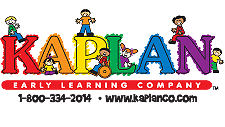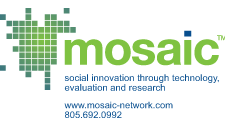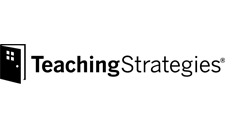Plenary Sessions
The 2013 National Smart Start Conference will feature Plenary Sessions throughout the meeting. These sessions will feature nationally renowned experts on a range of topics.
Buffering the Effects of Stress on Young Children: Practical Strategies
Dr. Betty Rintoul
Recent research, such as the CDC's long term study of Adverse Childhood Events, has highlighted the long-term impact of early childhood stress on health and development. This training focuses on helping early childhood professionals develop specific practical strategies for buffering and supporting children birth through five when they are faced with stressful experiences, ranging from typical to traumatic. We will discuss four basic guidelines for developing strategies to help children cope with stress, illustrating each with specific examples and tools.
Areas addressed include: 1) biological foundations of sleep, nutrition, and activity, 2) routines and predictability, 3) supportive relationships, and 4) processing and understanding difficult experiences. Early childhood professionals can apply this training as they work with parents and caregivers to develop case-specific strategies to support children through all kinds of stress, from daily hassles to traumatic life events.
Lessons Learned from Diverse State Governance Models
Karen Ponder, Stephanie Fanjul, Rhian Allvin, Sherri Killins, and Harriet Dichter
This session will include a panel of state leaders who have created and managed diverse state-level governance models. The purpose will be to discuss the contrasts and lessons learned in a variety of governance models. The panel will address the practical, power and political relationships between state and local governance and implementation. In addition they will discuss effective strategies that they have used to engage in meaningful cross-sector collaboration and shared outcomes across all aspects of their state's early childhood system.
ReadyNation and CED Discuss Engaging the Business Community
Although early childhood leaders are often told that they need to partner with their local business community, they almost never hear directly from business leaders as to the most effective ways to engage them. Many advocates struggle with how to build relationships with business people and then what to ask them to do.
Business leaders associated with ReadyNation and the Committee for Economic Development will offer a first-hand perspective in what messages work best with them and ways to actively involve the business community.
Phil Peterson Presentation
State Leadership Perspectives on the Early Learning Challenge Grant
Harriet Dichter (DE), Anne Bryan (NC), Sherri Killins (MA), Jennifer Stedron (CO)
States leaders from Delaware, Massachusetts, North Carolina and Colorado will lead an interactive discussion on Race to the Top Early Learning Challenge Grant work.
They will share their state's point of view about systems building, articulate the key strategies being used, and discuss areas of strength and of challenge. We will touch upon policy development, quality service delivery and implementation, family and community engagement, and sustainability within each state's context. We will compare and contrast approaches across states.
Walmart Moms and Parent Engagement
Jennifer Greppi and Margie Omero
How much do we know about the parents our programs seek to support and engage? How much of our work is based on assumptions? Is our engagement work truly engaging? Margie Omero, President and founder of Momentum Analysis, has gained national attention for her research on "Walmart Moms." Jennifer Greppi, an Organizer with Parent Voices, supports low-income women to understand policy and advocate for themselves, so they are the ones who fuel the process of creating a more quality, affordable and accessible child care system. Together, they will tackle these questions.
For the past four years, Margie Omero has studying the lives, challenges, and opinions of mothers who have shopped at a Walmart at least once in the past month. Many of these mothers are the same women we work with on and seek to engage in early childhood issues. Having a better understanding of their experiences, hopes and worries is essential to developing initiatives that are successful. But understanding is not enough. Too often, we give parents our talking points, our calls to action, and request that they do what we ask. Is that really engagement? Jennifer would say no. Her organization is parent-led and parent-organized and has had a long list of successful advocacy efforts in California, including most recently preventing the elimination of 35,500 child care slots and $450 million in funding cuts.
Margie Omero Presentation
Parent Voices Handout
What it Takes to Engage and Support Today's Families and Tools that Can Help
Rachel Schumacher, Nisha Patel, Judy Langford, and Sarah Sexton
Traditional models of parent involvement rarely address the array of issues today's families face, especially those challenged by poverty and social isolation. For example, efforts to support social and emotional development of children are undermined when parents are not able to help because of high levels of stress or experiences of deprivation in their own childhoods. Communicating the importance of education may not come easily for parents whose own school careers left them frustrated or without a degree or marketable skills.
To effectively build the capacities and resilience of young children, and sustain impacts long-term, the early childhood field needs fresh ideas and new partners from other sectors to help families provide the best environment for their children's success. This session will share the latest research on the importance of families to child development. The panel will share frameworks, tools, and profiles of promising efforts.






